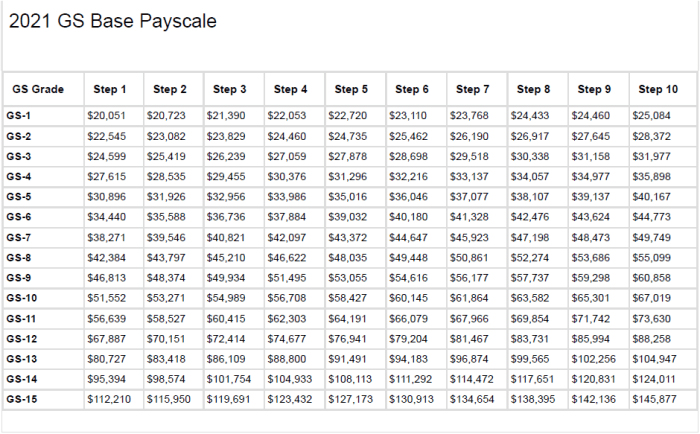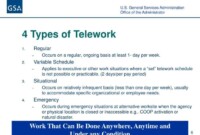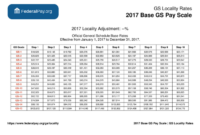GS Pay and Education: Does a Degree Matter? This question resonates deeply within the halls of government, where a complex system of pay grades and education requirements shapes the career paths of countless individuals. Navigating this system, understanding the value of education, and exploring alternative pathways to success are all critical considerations for anyone seeking a fulfilling career in the GS pay system.
The GS pay system, a cornerstone of federal employment, is intricately linked to education. From entry-level positions to leadership roles, the required education level often dictates the starting salary and potential for advancement. But does a traditional degree always hold the key to success?
Can experience and certifications provide an alternative route? This exploration delves into the intricate relationship between education and GS pay, examining the role of degrees, the impact of experience, and the evolving landscape of career development within the federal government.
The Value of Education in the GS Pay System
The General Schedule (GS) pay system, used by the federal government to determine employee salaries, places a strong emphasis on education. A higher level of education generally translates to a higher GS pay grade, leading to increased earning potential.
Correlation Between Education and GS Pay Grade
The GS pay system is structured to reward employees with higher levels of education and experience. The GS pay grade, ranging from GS-1 to GS-15, is directly influenced by the employee’s education and experience. A higher GS pay grade generally indicates a more complex and demanding position, often requiring a higher level of education.
Examples of Specific GS Pay Grades and Required Education Levels
The specific education requirements vary depending on the position and GS pay grade. Here are some examples:* GS-5:Typically requires a high school diploma or equivalent.
GS-7
Usually requires an associate’s degree or equivalent experience.
GS-9
Often requires a bachelor’s degree or equivalent experience.
GS-11
Generally requires a bachelor’s degree or equivalent experience.
GS-12
Typically requires a master’s degree or equivalent experience.
GS-13
So, you’re wondering if a college degree really makes a difference when it comes to your GS Pay? Well, let’s be real, a degree can definitely boost your chances of getting a higher grade and a better starting salary, especially if you’re aiming for an administrative assistant role.
But don’t fret if you haven’t got that diploma yet! You can still climb the ladder and earn a good living, and there are plenty of resources to help you navigate the GS Pay Scale in 2024. Check out this comprehensive guide for administrative assistants Navigating the GS Pay Scale 2024: A Comprehensive Guide for Administrative Assistants to learn more about the different levels and how to make the most of your career.
Remember, hard work and dedication can go a long way, no matter your educational background!
Usually requires a master’s degree or equivalent experience.
GS-14
Often requires a doctorate or equivalent experience.
GS-15
Generally requires a doctorate or equivalent experience.
Impact of Advanced Degrees on Salary Potential Within the GS Pay System
Advanced degrees, such as master’s degrees and doctorates, significantly impact salary potential within the GS pay system. Employees with advanced degrees are often eligible for higher GS pay grades and can advance more quickly in their careers. For example, a GS-12 position typically requires a master’s degree, while a GS-14 position often requires a doctorate.
Education Requirements for Specific GS Positions
The GS pay system often requires specific education levels for various positions, reflecting the specialized knowledge and skills needed to perform the duties effectively. This section will explore the common education requirements across different GS job categories and illustrate how specific degrees are mandated for certain positions.
Education Requirements by GS Job Category
The education requirements for GS positions vary depending on the specific job category. Some common examples include:
- Administrative and Management Positions:Many administrative and management roles within the GS system require a bachelor’s degree, often in public administration, business administration, or a related field. These positions involve planning, organizing, and directing the work of others, and a bachelor’s degree demonstrates the necessary analytical and leadership skills.
- Professional and Technical Positions:Positions in fields like engineering, law, medicine, and information technology often require a specific degree. For example, a GS-1300 Series position in engineering might require a bachelor’s degree in a relevant engineering field, while a GS-1500 Series position in law could necessitate a Juris Doctor (JD) degree.
- Clerical and Secretarial Positions:While clerical and secretarial positions may not require a college degree, they often require a high school diploma or equivalent and specific skills in areas like typing, data entry, and office software.
Specific Degree Requirements for GS Positions
Certain GS positions require specific degrees due to the highly specialized nature of the work involved. Examples of such positions include:
- GS-1300 Series (Engineering):Positions in this series typically require a bachelor’s degree in engineering or a related field. Examples include civil engineer, electrical engineer, and mechanical engineer.
- GS-1500 Series (Law):Positions in this series often require a Juris Doctor (JD) degree from an accredited law school. Examples include attorney, legal specialist, and paralegal.
- GS-1800 Series (Medicine):Positions in this series require a medical degree (MD or DO) and a license to practice medicine. Examples include physician, surgeon, and psychiatrist.
Experience in Lieu of Education Requirements
In some GS positions, experience may be considered in lieu of education requirements. This is typically the case when the required skills and knowledge can be acquired through extensive work experience.
For example, a GS-1100 Series position in accounting might require a bachelor’s degree in accounting or a related field. However, individuals with a high school diploma or equivalent and at least four years of progressively responsible accounting experience may be considered for the position.
So, you’re wondering if a degree really matters when it comes to GS Pay? Well, let’s just say that having the right qualifications can definitely give you a leg up in the game! To navigate the intricacies of the GS Pay Scale in 2024, especially for IT professionals, check out this comprehensive guide: Navigating the GS Pay Scale 2024: A Comprehensive Guide for IT Professionals.
Understanding the scale can help you see how your education and experience translate into earning potential, whether you’re fresh out of school or a seasoned pro!
However, it is important to note that experience is typically only considered in lieu of education requirements when it is directly related to the specific duties of the position. Additionally, the amount of experience required to compensate for a lack of education may vary depending on the specific position.
The Role of Education in Career Advancement: GS Pay And Education: Does A Degree Matter?
In the GS pay system, education plays a pivotal role in influencing career progression and promotion opportunities. While experience is crucial, a higher level of education can often be a deciding factor in securing coveted promotions and leadership positions.
Impact of Education on Promotion Opportunities
A higher level of education often translates to increased knowledge, skills, and abilities, which are highly valued in the GS pay system. This can significantly enhance promotion opportunities for GS employees.
So, you’re wondering if a degree is really worth it when it comes to GS Pay? Well, it’s definitely a factor, but it’s not the only thing that matters! For a deeper dive into the specifics, check out this guide on the GS Pay Scale 2024 for Human Resources.
You’ll see how experience, job level, and location can all play a role in your potential salary. Remember, education is a powerful tool, but it’s just one piece of the puzzle when it comes to your career journey!
- Higher Starting Salary:GS employees with higher degrees often start at a higher salary grade, providing a solid foundation for future salary increases and promotions.
- Eligibility for Higher-Level Positions:Many GS positions require specific educational qualifications, limiting eligibility to those with the necessary credentials. For instance, a Master’s degree might be required for a supervisory or management role.
- Enhanced Skills and Knowledge:Higher education equips individuals with specialized skills and knowledge, making them more competitive candidates for promotions and leadership roles. This could include analytical skills, problem-solving abilities, and communication expertise.
- Increased Job Security:Employees with advanced degrees often have greater job security due to their higher qualifications and adaptability to changing job requirements. This stability can be a significant advantage in the GS pay system, where promotions are often based on merit and performance.
Career Trajectories of GS Employees with Different Educational Backgrounds
The career trajectories of GS employees can vary significantly based on their educational backgrounds.
- Employees with Bachelor’s Degrees:These employees typically have a good foundation for entry-level positions and can advance to mid-level roles with experience. However, reaching senior management or leadership positions may require further education or specialized training.
- Employees with Master’s Degrees:Employees with Master’s degrees are often well-positioned for supervisory or management roles. Their advanced knowledge and skills can provide a competitive edge in securing promotions and leadership positions.
- Employees with Doctoral Degrees:GS employees with doctoral degrees often have access to the most senior and specialized positions within the system. They are highly sought-after for research, analysis, and leadership roles, with a clear path for career advancement.
Advantages of Pursuing Further Education for Leadership Roles
Pursuing further education can be a strategic investment for GS employees seeking leadership roles.
- Develop Leadership Skills:Master’s programs in Public Administration or related fields often offer courses on leadership, management, and organizational behavior, providing valuable skills for aspiring leaders.
- Gain Specialized Knowledge:Advanced degrees can provide specialized knowledge in specific areas relevant to leadership roles, such as policy analysis, project management, or human resource management.
- Enhance Credibility and Authority:Higher education can enhance an individual’s credibility and authority, making them more effective leaders within the GS pay system.
- Expand Professional Network:Graduate programs often provide opportunities to connect with other professionals in the field, expanding networking opportunities and potential career advancement pathways.
Alternative Pathways to GS Success
While a traditional degree is often seen as a gateway to GS positions, it’s crucial to understand that alternative pathways exist for those seeking a fulfilling career within the system. The GS pay system values a combination of skills, experience, and qualifications, recognizing that diverse backgrounds and expertise contribute to the overall success of the federal workforce.
The Value of Relevant Work Experience and Certifications
The GS pay system acknowledges the value of hands-on experience and specialized knowledge gained through practical application. Relevant work experience can be a significant asset, demonstrating proficiency in specific skills and tasks required for a particular GS position. Certifications, obtained through professional organizations or training programs, serve as concrete proof of expertise in a specific field.
These certifications often validate knowledge and skills, enhancing the credibility and competitiveness of candidates in the GS hiring process.
A Hypothetical Career Path for a GS Employee Without a Traditional Degree
Consider a hypothetical individual, Sarah, who possesses a strong work ethic and a passion for data analysis. Sarah started her career as a data entry clerk, gaining valuable experience in data management and organization. Over time, she honed her analytical skills through self-directed learning and online courses.
Sarah then pursued certifications in data analysis and business intelligence, further strengthening her credentials. With a proven track record of success and relevant certifications, Sarah successfully transitioned to a GS position as a Data Analyst, leveraging her work experience and certifications to demonstrate her capabilities.
Professional Development Opportunities for GS Employees, GS Pay and Education: Does a Degree Matter?
GS employees have access to a wealth of professional development opportunities designed to enhance their skills, knowledge, and career advancement. These opportunities can be categorized as follows:
- Online Courses: Platforms like Coursera, edX, and Udacity offer a vast library of online courses covering a wide range of topics, from data science to project management. These courses allow employees to acquire new skills and knowledge at their own pace and convenience.
- Certifications: Obtaining industry-recognized certifications demonstrates a commitment to professional development and expertise. The GS pay system encourages employees to pursue certifications relevant to their roles and career aspirations.
- Training Programs: Federal agencies offer a variety of training programs, both in-person and online, to equip employees with the skills and knowledge necessary for success in their roles. These programs often focus on specific technical skills, leadership development, or management training.
| Opportunity | Description | Benefits |
|---|---|---|
| Online Courses | Accessible, self-paced learning on a wide range of topics. | Skill development, knowledge acquisition, career advancement. |
| Certifications | Industry-recognized credentials that validate expertise. | Enhanced credibility, increased earning potential, career advancement. |
| Training Programs | Agency-sponsored programs designed to equip employees with specific skills and knowledge. | Improved job performance, leadership development, career advancement. |
The Evolving Landscape of Education and GS Pay

The relationship between education and GS pay is dynamic and constantly evolving. As technology transforms the job market and demands shift, the role of education in securing and advancing within the GS system is undergoing a significant transformation.
Impact of Emerging Technologies and Changing Job Demands
Emerging technologies, like artificial intelligence (AI), automation, and data analytics, are reshaping the landscape of work. These advancements are automating routine tasks, creating new roles requiring specialized skills, and making traditional education pathways less relevant in some cases. The GS pay system, traditionally emphasizing academic credentials, must adapt to these changes.
While a bachelor’s degree might have been a standard requirement for many positions in the past, the focus is shifting towards skills, adaptability, and the ability to learn continuously. This means the GS system may need to embrace alternative pathways to success, such as:
- Skill-based certifications: These demonstrate proficiency in specific technical or soft skills, which are highly valued in the evolving workforce.
- Micro-credentials: Short, focused programs that validate knowledge and skills in specific areas, allowing individuals to upskill and adapt to new demands.
- Online learning platforms: These provide access to a wide range of courses and programs, enabling continuous learning and skill development.
Adaptation of the GS Pay System
The GS pay system needs to adapt to the changing role of education by:
- Updating job descriptions: Incorporating specific skill requirements and alternative pathways to demonstrate competence, moving beyond traditional education requirements.
- Implementing competency-based assessments: Evaluating individuals based on their actual skills and abilities rather than solely on academic credentials.
- Investing in training and development programs: Providing opportunities for GS employees to acquire new skills and adapt to evolving job demands.
Hypothetical Scenario: The Future of Education and GS Pay in the Next Decade
Imagine a scenario ten years from now. The GS pay system has embraced a more flexible and skills-based approach to hiring and promotion. Job descriptions focus on specific competencies, and candidates are assessed through a combination of skills tests, portfolios, and online learning achievements.The GS system has partnered with leading online learning platforms to provide employees with access to cutting-edge training and development programs.
These programs cover emerging technologies like AI, data analytics, and cybersecurity, ensuring employees have the skills needed to thrive in the future workforce.This scenario reflects a future where the GS system values continuous learning and adaptability, recognizing that education is an ongoing process, not a one-time event.
By embracing these changes, the GS system can attract and retain a highly skilled and adaptable workforce, ensuring its relevance and effectiveness in the evolving landscape of work.
Conclusive Thoughts
The landscape of education and GS pay is dynamic, constantly evolving in response to technological advancements and changing job demands. While a formal degree remains a valuable asset, a combination of experience, certifications, and a commitment to continuous learning can pave the way for a successful career within the GS pay system.
Whether you choose the traditional path or forge your own, the key to success lies in understanding the system, developing your skills, and embracing the opportunities that lie ahead.


